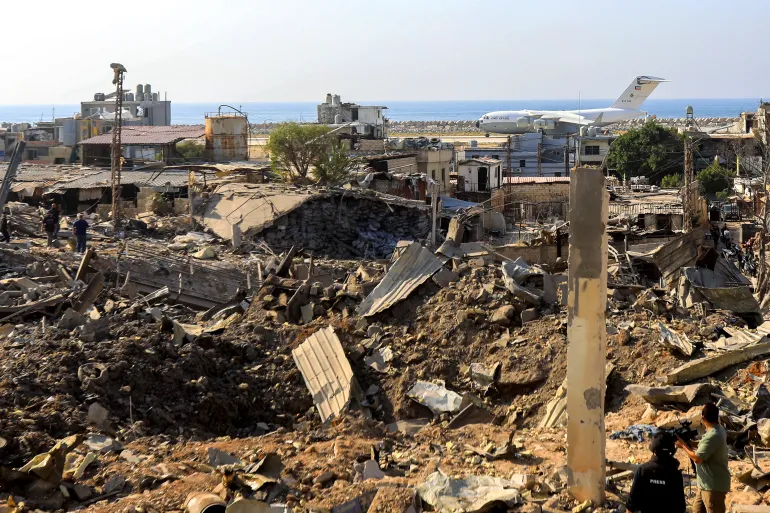Over 100 Lebanese lawmakers have urged the United Nations to step in and safeguard Lebanon’s priceless heritage sites, which are currently endangered due to the ongoing conflict between Israel and Hezbollah. This appeal, addressed to UNESCO’s Director-General Audrey Azoulay, highlights the pressing need to protect these historic landmarks, including six UNESCO World Heritage sites, such as the Roman ruins in Baalbek and the ancient city of Tyre.
This request follows Israeli airstrikes that have hit areas near these cultural treasures. On November 7, for instance, an Israeli airstrike targeted Baalbek, resulting in considerable damage and raising concerns about the safety of the city’s ancient Roman temple, a site of great historical importance. Photos from the aftermath reveal damaged vehicles and debris scattered throughout the area, underscoring the war’s collateral damage beyond immediate human losses.
The lawmakers’ statement conveyed deep concern over what they termed “serious human rights violations and atrocities” occurring during the ongoing conflict, which has now lasted for two months. They emphasized the vital need to protect Lebanon’s historic sites, not just for their cultural and historical significance but also for their importance to the nation’s identity and heritage.
In their appeal, the MPs identified specific sites at risk, including the ancient cities of Baalbek and Tyre, as well as Sidon, all recognized for their remarkable architectural and historical value. “As parliamentarians, we draw your attention to an urgent need: the protection of Lebanon’s historic sites in Baalbek, Tyre, Sidon, and other invaluable landmarks currently threatened by the escalation of violence,” they stated.
This initiative underscores the crucial link between cultural preservation and international diplomacy, as Lebanon strives to garner global support to protect its heritage amid the chaos of war. The appeal for action not only signifies a wish to safeguard physical landmarks but also reflects a dedication to upholding Lebanon’s rich cultural fabric, which has been developed over thousands of years.
As the conflict persists, the safeguarding of these sites remains in jeopardy. The MPs called on the international community to act swiftly to avert further damage, resonating with the concerns of cultural preservation advocates around the globe who have long cautioned about the threats that war poses to heritage sites.
In light of these events, UNESCO has reaffirmed its dedication to protecting cultural heritage in areas of conflict, stressing that these sites are not merely echoes of the past, but essential components of current and future identities. The situation in Lebanon serves as a powerful reminder of the ongoing necessity for vigilance and proactive measures in times of conflict, ensuring that cultural legacies are preserved for generations to come.





